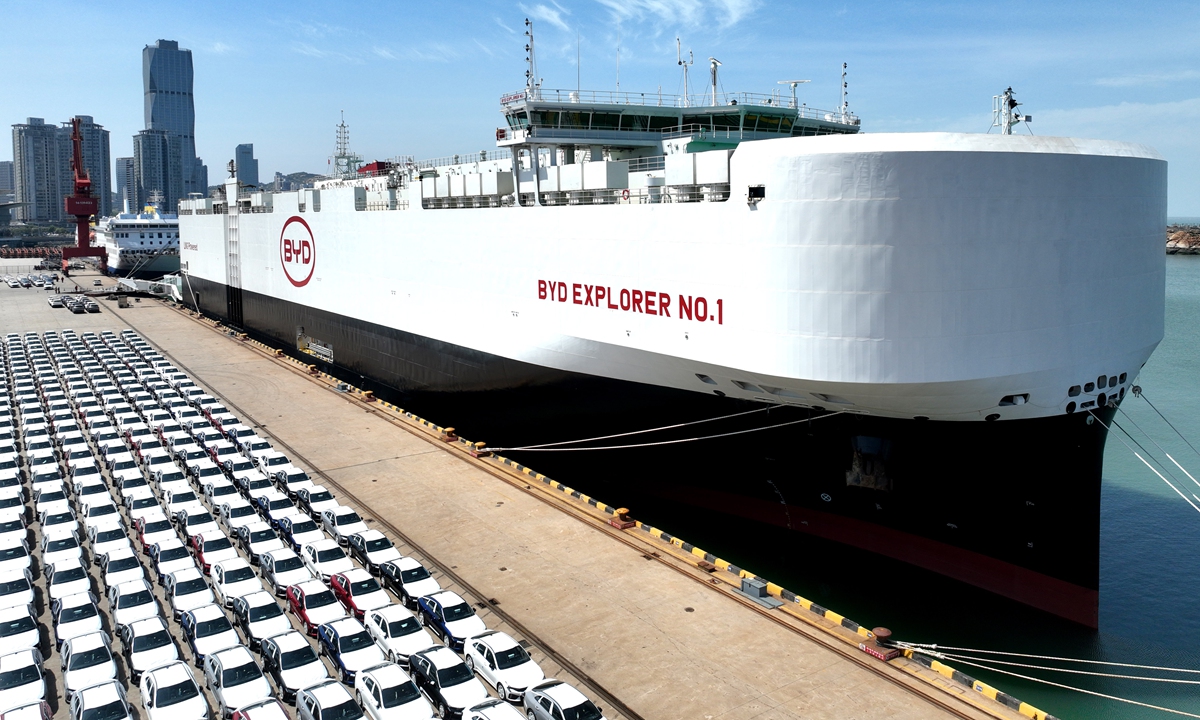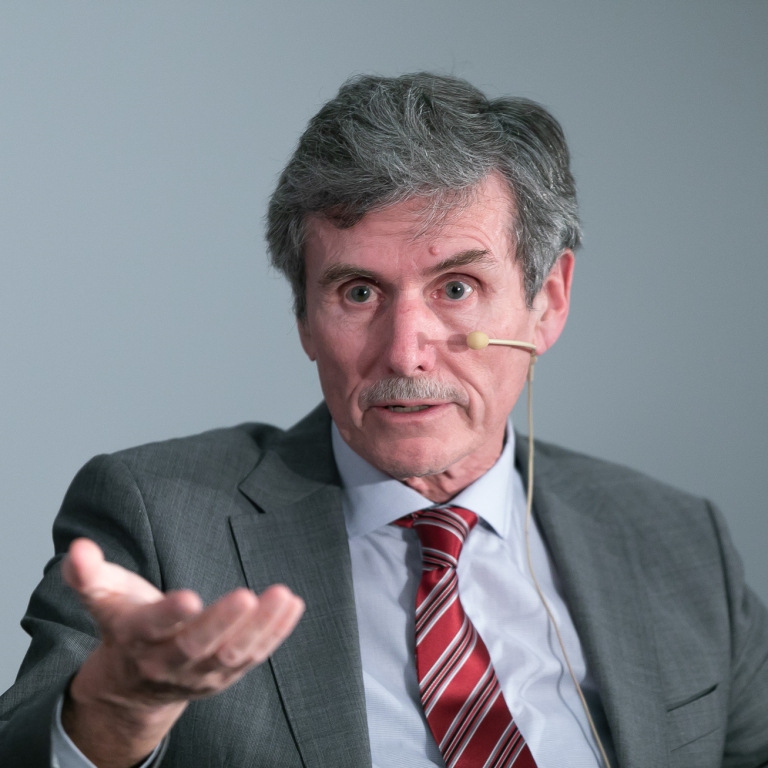
A batch of new-energy vehicles are ready to be exported at Lianyungang Port in East China's Jiangsu Province on April 25, 2024. Photo: VCG
Editor's Note:The trade relations between China and the EU are entering a turbulent period, with the EU unilaterally initiating a series of anti-subsidy investigations into Chinese products since October 2023.
The tariffs by the EU on Chinese new-energy vehicles (NEVs) are expected to exacerbate the tensions between these two major economies of the world.
Global Times reporter Ma Tong (
GT) interviewed Ferdinand Dudenhöffer (
Dudenhöffer), the founder and director of the German-based Center for Automotive Research, an institute that focuses on automobile industry research at the University of Duisburg-Essen. The renowned professor shared his insights on China-EU relations, including recent frictions on NEVs.

Ferdinand Dudenh?ffer Photo: Courtesy of Ferdinand Dudenh?ffer
GT: What do you think is the purpose of the EU investigations into Chinese electric vehicles? Do the measures align with international trade rules?
Dudenhöffer: The measures suggested that the EU is attempting to protect itself from competition. Through investigations and tariff hikes targeting Chinese EVs, they are seeking to make it more difficult for Chinese car manufacturers to sell their products in the European market, since tariffs will artificially raise the prices of China-imported vehicles and prompt EU consumers to opt for European-made cars.
In recent years, when dealing with trade relations with China, particularly in some emerging sectors, the EU has emulated the US approach, which has been proven misguided and wrong.
There is no evidence to support the US and EU claims of unfair subsidies being provided to Chinese EV companies. Without presenting any concrete facts, the tariffs imposed by the EU side would certainly be seen as not aligning with international trade rules and regulations.
At the same time, many conservative politicians and parties in Europe are advocating against EVs and asserting that internal combustion engines represent the future. They are pushing for consumers to purchase cars with internal combustion engines made in Europe, which will ultimately exacerbate global warming, and undermine the industry too.
The tariffs will be detrimental as many European electric car models such as the Renault Dacia Spring Electric, the BMW Mini Concept Aceman, and the Smart from the Mercedes-Geely joint venture are produced in China. To levy tariffs in this context will backfire and hinder the sales of EVs manufactured by the bloc's car producers. The EU's imprudent and short-sighted action will punish the German automotive industry in the end.
GT: What impacts do you expect as the EU imposed high tariffs on Chinese EVs? Will it endanger economic and trade cooperation between the two economies?
Dudenhöffer: As the EU decided to raise tariffs, economic and trade relations between the two sides will deteriorate, as their aim seems to be to distance the bloc from China.
At present, the EU seeks to forge stronger ties with the US while showing apprehension toward China. Regional conflicts in Europe have also strained economic relations between China and the EU.
Also, the effects of this "decoupling" and the punitive tariffs are catastrophic for Europe. China currently stands as the global front-runner in innovating future car technology, particularly in areas such as battery development, battery-electric cars, smart cockpit features, and autonomous driving, as well as pioneering software operating systems for next-generation vehicles, like Huawei's Harmony operating system.
Moreover, China is the world's largest automobile market and the leading hub for luxury vehicle sales. The German automotive industry's prosperity hinges greatly on this pivotal overseas market, making it clear that "If you are not in the Chinese market, you are not in the car business." Given this context, the EU car manufacturers and suppliers need cooperation and exchange with China.
GT: How do you assess the US' "overcapacity" claim targeting Chinese EV industry? Does the claim contain a grain of truth?
Dudenhöffer: It is propaganda. The global market for EVs remains under-supplied, and a greater supply is urgently needed to address global climate change. China's incentive measures to offer subsidies to EV purchasers are a commendable and effective approach to speed up the energy transition.
At the same time, by producing electric cars in China, manufacturers stand to benefit from access to a sizable Chinese market and cost advantages. This explains why BMW has decided to produce the new Mini electric car in collaboration with China's Great Wall Motor, why Dacia manufactured its electric car in Wuhan, central China's Hubei Province, and why Renault's upcoming Twingo electric car will also be made in China.
For these industry players, access to affordable components such as batteries and China's well-established industrial supply chain can drive increased production volumes, leading to cost efficiencies.
Taking the US EV giant Tesla as an example, according to my estimates, the company has a production capacity of at least 2.5 million units each year, but it is projected to sell only 1.5 million vehicles this year -- or possibly even less. Should we say that this resulted in an "overcapacity" of approximately one million vehicles for Tesla?
This shows how fallacious the so-called overcapacity rhetoric is. The allegation by the US and the EU is untrue and groundless propaganda, against their biggest market competitor, and it overlooks fundamental principles of market dynamics.
GT: How do you assess China's recent progress in the EV sector? How could China and Europe cooperate in emerging sectors such as this green energy transformation?
Dudenhöffer: In my opinion, China is the global leader in battery technology and industrialization, which are the backbone of the development of the EV industry.
Cooperation between enterprises is crucial. There is already well-established and fruitful cooperation between German and Chinese companies over the past decades. To enhance it further, the two sides should eliminate administrative hurdles by facilitating company establishment, streamlining capital transfers, aligning and protecting patent rights, simplifying data exchange, and collaborating on combating cybercrime.
However, the least desirable course of action would be a tariff escalation, as this would undermine the cornerstone of mutually beneficial cooperation and jeopardize the tangible interests of both sides.





